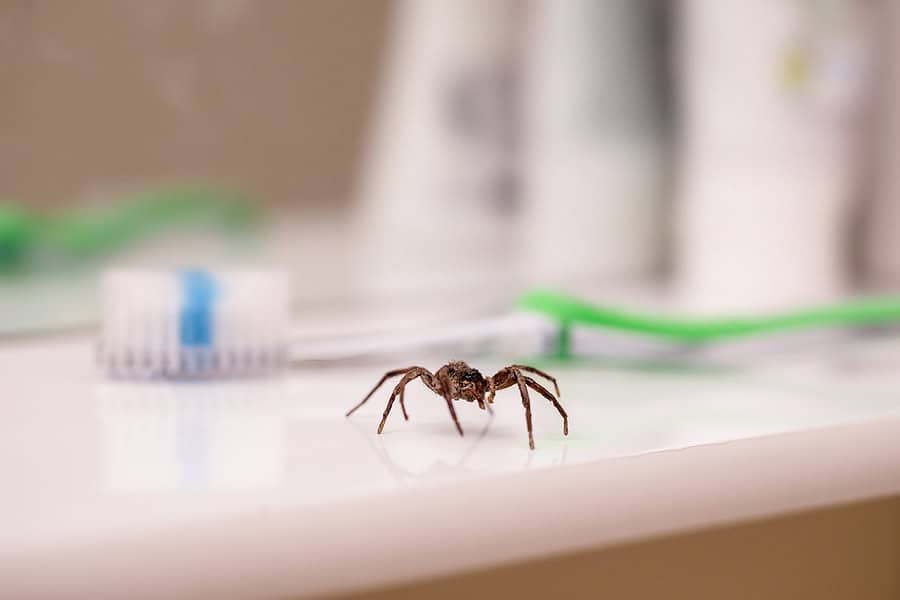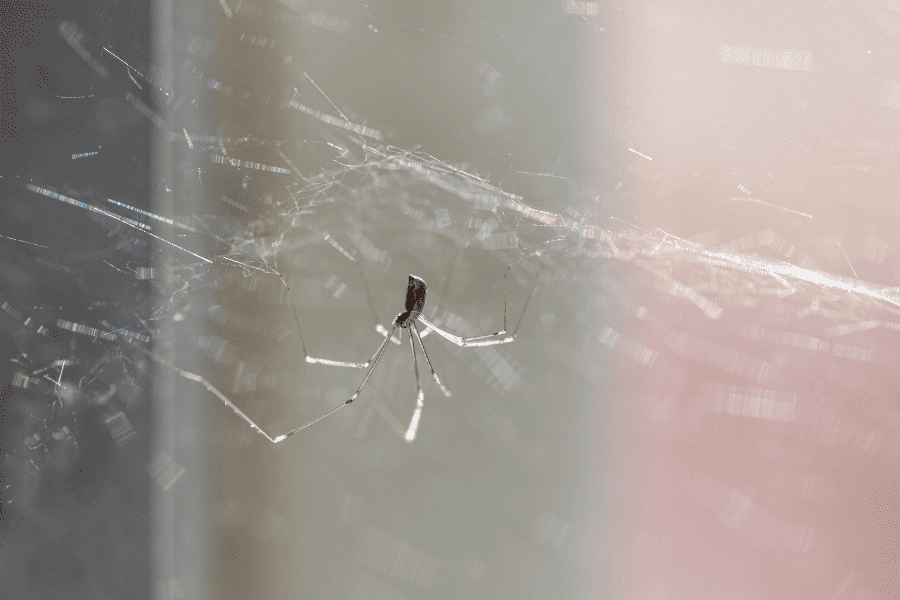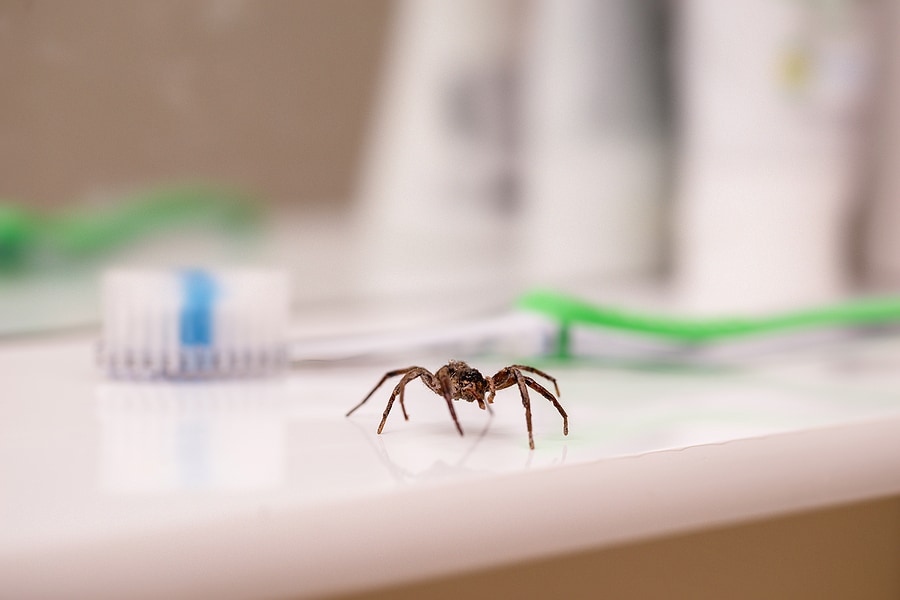READY TO GET STARTED?
REQUEST A FREE ESTIMATE
Fill out the form below or call (888) 466-7849 for a free, no-obligation estimate.

Spiders are typically harmless and even deemed beneficial by controlling other pests, but having them in your home can be alarming! We breakdown some easy do-it-yourself spider prevention tips that you can use around your Lauderhill home.
Spiders love to hide in cluttered spaces, so keeping your home clean and tidy can significantly reduce the chances of them making themselves at home. Always vacuum regularly, paying extra attention to corners, underneath furniture, and hard-to-reach areas. Look at dust surfaces and if you spot a spider web with no spider, carefully remove the web. It’s also crucial to declutter storage spaces, basements, attics, and garages. Organize items in sealed plastic containers instead of cardboard boxes, which spiders will infest.
Spiders will enter homes through the tiniest cracks and gaps. Sealing these openings will help keep them from entering. Inspect your home and check for cracks in the walls, windows, and doors. Seal any you may find as soon as possible with sealant or caulk. Ensure that your windows and vents have tight-fitting screens, replacing any damaged screens to prevent entry.
Spiders are attracted to insects, which are drawn to lights at night. Look to reduce outdoor lighting to minimize spider activity. Replace white bulbs with yellow bulbs, as insects are less attracted to it. Additionally, consider utilizing timed outdoor lights to avoid them staying on overnight and attracting insects.
Your yard is the first line of defense to discourage spiders from entering your property, so it’s important to keep it well-maintained. Keep shrubs, trees, and other plants trimmed and pointing away from your home. Clear out leaves, unused woodpiles, and debris that spiders can hide in. If you use mulch, avoid placing it near your foundation so it doesn’t provide a habitat for spiders and other pests.
Keeping an eye out for early signs of spider activity will help you address the issue before it becomes a full-blown infestation. Make sure to regularly inspect areas like closets, basements, and garages for webs and spiders.
If you notice a significant spider problem, it’s always best to call a pest control company near you to help. These professionals will provide you with a comprehensive inspection and the best pest control plan for your situation.

If you’ve noticed an increase of spiders inside your Florida home, it can be quite alarming for most homeowners! While most spiders are not dangerous to humans and are considered a benefit to our environment, it doesn’t mean you want them inside your house. With several species found in Florida, including daddy long legs, southern house spider, black widows, and more, it’s inevitable to come across one, but it’s easy to prevent, reduce, or eliminate their presence around your home. Check out the reasons why spiders are entering your home and easy spider prevention tips to avoid them in the future.
Spiders enter homes to search for food and find a habitat to continue looking for prey to feed on. Spiders eat insects, so if you’ve found webs around your home, it’s likely that those spiders found their food source. Inspect the inside and outside of your home for spider signs, these include spider webs, egg sacs, insects they feed on, or the spiders themselves.
There are several ways you can help reduce spider activity on your property. Spiders are looking for food, so it’s important to reduce the amount available to them by removing other household pests from your property. You can reduce the insects on your property by:
Not only is it important to reduce the insect population to avoid spiders, but it is equally important to deter them from even entering your home. Consider these spider prevention tips to avoid them from invading indoors:
If you’ve noticed more spider activity than you’re used to, consider calling your local Florida pest control company for help. These professionals will provide you with a thorough inspection and recurring pest control plan to help avoid spiders and other household pests in the future.

Creepy and crawly, spiders can easily sneak into homes without you noticing. Most spiders that homeowners come across are harmless; but if you don’t take precautions, you can find them infesting your home. Below are some easy, do-it-yourself tips for spider prevention.
Clean Up Clutter
Spiders tend to look for dark, secluded areas to inhabit. You can often find them in rooms that have clutter, such as basements and attics. To keep these pests from infesting, keep garages, sheds, attics, basements, and other areas that aren’t utilized very often clean and clear of clutter.
In your regularly used rooms, be mindful of leaving clothes or clutter around the house. Try to avoid leaving clothes and shoes on the floor and instead, consider storing them in plastic bins. Shake out any clothing left on the floor and in the hamper.
Repair and Seal
The smallest gap or hole can allow spiders right into your home. Look around the inside and outside of your home and search for any open holes or gaps. Inspect your window screens, doors, and siding, as these are places that can provide openings leading inside.
If you find openings, seal them as soon as possible to eliminate the chance of these pests from entering. Make sure to inspect your house seasonally and provide any repairs.
Check Before Entering
Packages, secondhand furniture, and even groceries provide a perfect gateway inside homes for spiders. These pests will often hitch a ride on these items without you noticing. Make sure to inspect all packages delivered to your porch or steps, groceries as you unload them, boxes of decorations brought in from storage, and used appliances and furniture bought secondhand.
Spotting spiders can be difficult, but once you see them or suspect that you have a problem, it’s best to call your local pest control company to help eliminate and prevent them. A service professional will inspect the exterior and interior of the home to identify and provide you with the best plan of action to treat them.